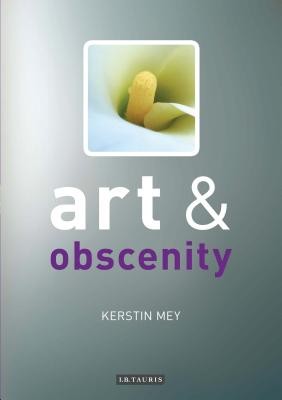
- We will send in 10–14 business days.
- Author: Kerstin Mey
- Publisher: I. B. Tauris & Company
- ISBN-10: 1845112350
- ISBN-13: 9781845112356
- Format: 15.1 x 21.6 x 1.3 cm, softcover
- Language: English
- SAVE -10% with code: EXTRA
Reviews
Description
Explicit material is more widely available in the internet age than ever before, yet the concept of 'obscenity' remains as difficult to pin down as it is to approach without bias: notions of what is 'obscene' shift with societies' shifting mores, and our responses to explicit or disturbing material can be highly subjective. In this intelligent and sensitive book, Kerstin Mey grapples with the work of twentieth-century artists practising at the edges of acceptability, from Hans Bellmer through to Nobuyoshi Araki, from Robert Mapplethorpe to Annie Sprinkle, and from Hermann Nitsch to Paul McCarthy. Mey refuses sweeping statements and 'knee-jerk' responses, arguing with dexterity that some works, regardless of their 'high art' context, remain deeply problematic, whilst others are both groundbreaking and liberating.
EXTRA 10 % discount with code: EXTRA
The promotion ends in 19d.05:53:02
The discount code is valid when purchasing from 10 €. Discounts do not stack.
- Author: Kerstin Mey
- Publisher: I. B. Tauris & Company
- ISBN-10: 1845112350
- ISBN-13: 9781845112356
- Format: 15.1 x 21.6 x 1.3 cm, softcover
- Language: English English
Explicit material is more widely available in the internet age than ever before, yet the concept of 'obscenity' remains as difficult to pin down as it is to approach without bias: notions of what is 'obscene' shift with societies' shifting mores, and our responses to explicit or disturbing material can be highly subjective. In this intelligent and sensitive book, Kerstin Mey grapples with the work of twentieth-century artists practising at the edges of acceptability, from Hans Bellmer through to Nobuyoshi Araki, from Robert Mapplethorpe to Annie Sprinkle, and from Hermann Nitsch to Paul McCarthy. Mey refuses sweeping statements and 'knee-jerk' responses, arguing with dexterity that some works, regardless of their 'high art' context, remain deeply problematic, whilst others are both groundbreaking and liberating.


Reviews